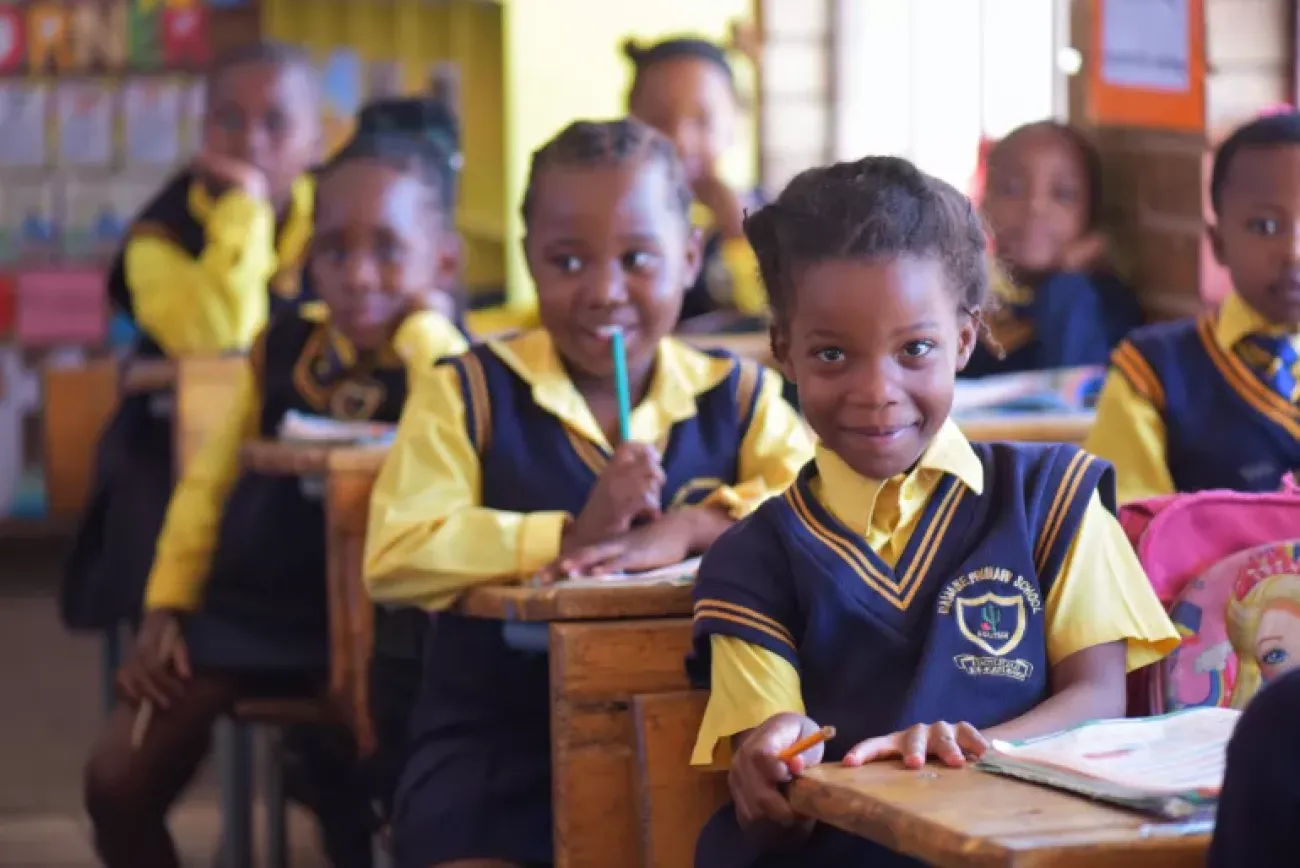Investing in foundational learning drives development

To improve foundational learning, South Africa must increase public investment in the early years by expanding access to early childhood education.
“Today is the sixth International Day of Education and is celebrated under the theme ‘learning for lasting peace’.
“It’s an apt theme, in a world where conflict, climate shocks and inequality threaten our very existence. So, while we put out fires and work to reduce the impact of multiple crises on children, we must also invest in building the learning foundations for the future to enable a generation of children to learn for lasting peace.
“Ending ‘learning poverty’ can in-turn create fairer and safer societies that drive development, reduce the risk of conflict, and strengthen resilience to cope in the face of crises, fostering a kinder and better society for every child – for everyone.
“In South Africa, the class of 2023 recently received their Matric results, achieving a national pass mark of some 82.9 per cent, an increase of 2.8 percentage points from the previous year. We congratulate all learners who sat their Matric exams.
“But the story is as always more nuanced. The 2021 ‘Progress in International Reading Literacy Study’ results revealed that 81 per cent of Grade 4 learners in South Africa cannot read for meaning. Across Sub Saharan Africa, it is estimated that today, 9 out of 10 ten-year-olds cannot read and understand a simple story or solve basic math.
“The COVID-19 pandemic only worsened existing cracks and historic challenges in the education sector. Data from the Department of Basic Education showed that education for learners at the foundational phase was particularly hard hit, with 65% of school contact time lost due to closures and rotational attendance policies.
“These learning losses in the early grades present a serious long-term threat for the children affected. One of the strongest predictors of children dropping out of the education system is poor learning foundations. Years of research globally is clear that fewer years of education can lead to worse health outcomes, greater youth unemployment and deeper levels of poverty.
“That’s why learning and skills for all, with a focus on the foundation phase, is a UNICEF priority across the Eastern and Southern Africa region. This means improving basic literacy, numeracy, and transferable skills such as socioemotional skills. Foundational learning essentially provides the building blocks for all other learning.
“In South Africa, UNICEF is supporting and championing the ‘Early Grade Reading Programme’ to implement evidence-based programming that can improve the overall quality of teaching and in-turn learning across key foundational learning areas: early childhood development, reading and literacy in home languages, and numeracy.
To improve foundational learning, South Africa must increase public investment in the early years by expanding access to early childhood education and scaling up proven solutions to improve literacy and numeracy, including investing in teachers and their ability to deliver quality and impactful learning.
“With the support of the LEGO Foundation, Hapag Lloyd, the European Union, the Bill and Melinda Gates Foundation and the Hempel Foundation, among others, UNICEF is working in partnership with the Department of Basic Education, to improve educational outcomes for learners across marginalised communities. This includes through targeted, measurable, and tested programmes that positively transform the learning journeys of these children.
“We also welcome the African Union’s designation of 2024 as the Year of Education in Africa, under the theme, ‘Educate an African fit for the 21st Century: Building resilient education systems for increased access to inclusive, lifelong, quality, and relevant learning in Africa’. This is an important opportunity to accelerate efforts in transforming education on the continent and unleashing Africa’s potential.
“Education is a fundamental human right and it is our obligation to ensure that no child is left behind.”
Note to Editors
The International Day of Education is celebrated annually on January 24th. It was proclaimed by the United Nations General Assembly to celebrate the role of education in
promoting peace and development. The theme for 2024, is “learning for lasting peace”. The day aims to raise awareness about the importance of education as a human right, a public good, and a public responsibility while highlighting the need for inclusive and equitable quality education and lifelong opportunities for all.


